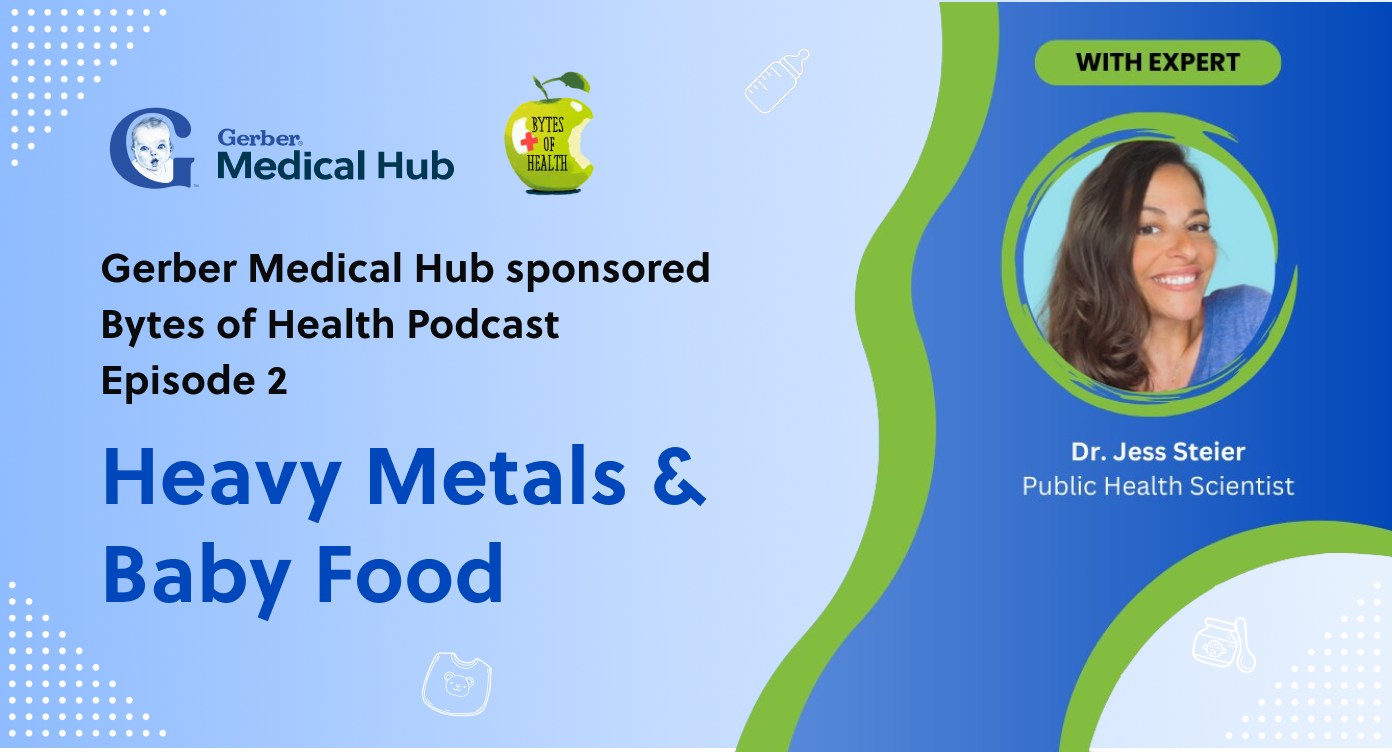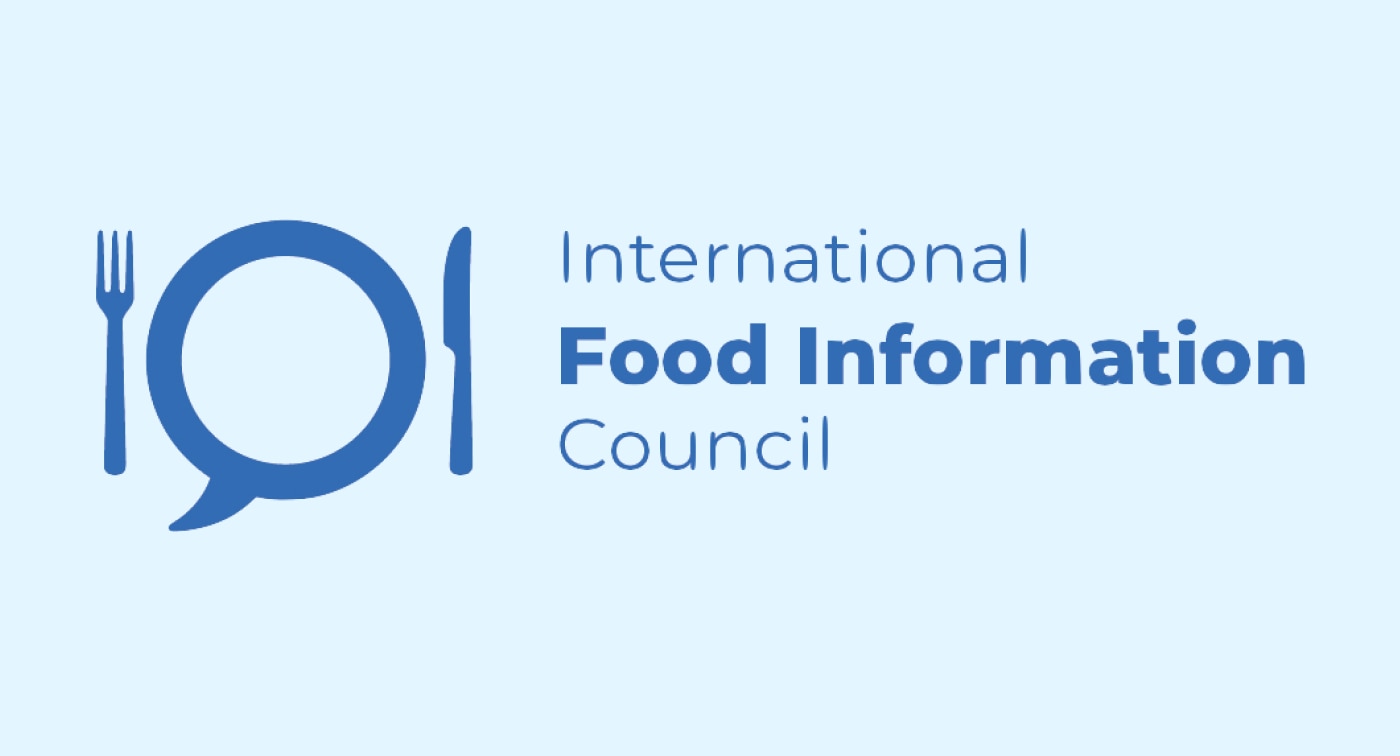Understanding Heavy Metals - BabyMatters™
3 min read • By: Gerber Medical Hub
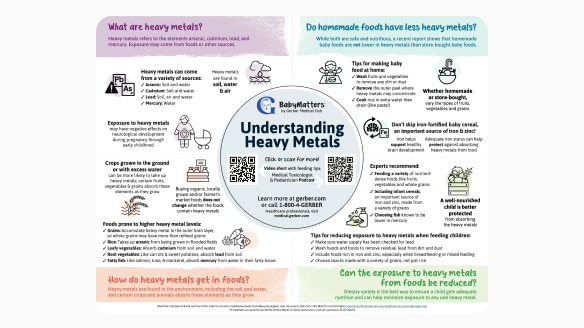
Quick summary
Heavy metals like arsenic, cadmium, lead, and mercury are present in soil, water, and air, absorbed by crops and animals, and can impact early development. Homemade and store-bought baby foods have similar heavy metal levels. To reduce exposure, wash, peel, and cook foods wisely, ensure clean water, prioritize iron and zinc-rich foods, and opt for low-mercury fish.
picture_as_pdfVIEW PDF INFOGRAPHIC
Table of contents
What are heavy metals?
Heavy metals refers to the elements arsenic, cadmium, lead, and mercury. Exposure may come from foods or other sources.
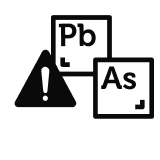
Heavy metals can come from a variety of sources:
- Arsenic: Soil and water
- Cadmium: Soil and water
- Lead: Soil, air, and water
- Mercury: Water

Heavy metals are found in soil, water & air
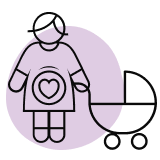
Exposure to heavy metals may have negative effects on neurological development during pregnancy through early childhood
Do homemade foods have less heavy metals?
While both are safe and nutritious, a recent report shows that homemade baby foods are not lower in heavy metals than store-bought baby foods.
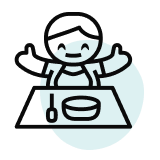
Tips for making baby food at home:
- Wash fruits and vegetables to remove any dirt or dust
- Remove the outer peel where heavy metals may concentrate
- Cook rice in extra water then drain (like pasta!)
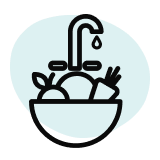
Whether homemade or store-bought, vary the types of fruits, vegetables and grains
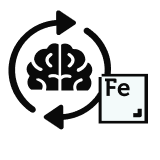
Don't skip iron-fortified baby cereal, an important source of iron & zinc!
- Iron helps support healthy brain development
- Adequate iron status can help protect against absorbing heavy metals from food
How do heavy metals get in foods?
Heavy metals are found in the environment, including the soil and water, and certain crops and animals absorb these elements as they grow.

Buying organic, locally grown and/or farmer's market foods does not change whether the foods contain heavy metals

Crops grown in the ground or with excess water can be more likely to take up heavy metals; certain fruits, vegetables & grains absorb these elements as they grow
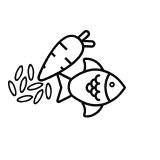
Foods prone to higher heavy metal levels:
- Grains: Accumulate heavy metal in the outer bran layer, so whole grains may have more than refined grains
- Rice: Takes up arsenic from being grown in flooded fields
- Leafy vegetables: Absorb cadmium from soil and water
- Root vegetables: Like carrots & sweet potatoes, absorb lead from soil
- Fatty fish: Like salmon, tuna, & mackerel, absorb mercury from water in their fatty tissue
Can the exposure to heavy metals from foods be reduced?
Dietary variety is the best way to ensure a child gets adequate nutrition and can help minimize exposure to any one heavy metal.

Tips for reducing exposure to heavy metals when feeding children:
- Make sure water supply has been checked for lead
- Wash hands and foods to remove residual lead from dirt and dust
- Include foods rich in iron and zinc, especially when breastfeeding or mixed feeding
- Choose snacks made with a variety of grains, not just rice

A well-nourished child is better protected from absorbing the heavy metals. Experts recommend:
- Feeding a variety of nutrient dense foods like fruits, vegetables and whole grains
- Including infant cereals, an important source of iron and zinc, made from a variety of grains
- Choosing fish known to be lower in mercury
BabyMatters understanding heavy metals resources

Podcast interview with Medical Scientific Liaison Jami Boccella, RDN, LD, CLC and special guest, Pediatrician and Toxicologist, Dr. Jennifer Sample, on the important topic of feeding infants and children, and understanding heavy metals.
Listen to podcast
Answers your questions about heavy metals and tips for reducing exposure: What are heavy metals? How do heavy metals get in foods? Do homemade foods have less heavy metals? Can the exposure to heavy metals from foods be reduced?
Watch video

